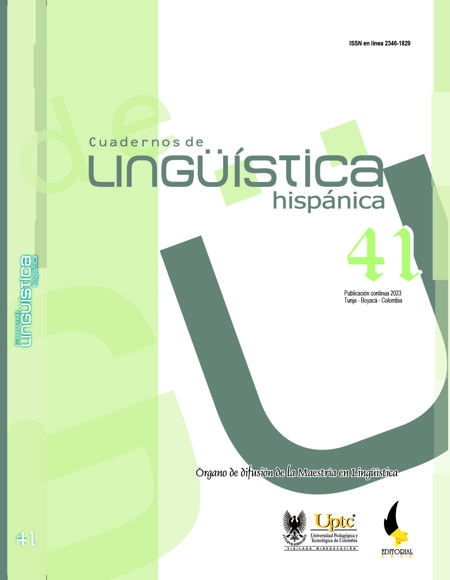Reading Comprehension on Smartphones, A Comparison with Computers

Abstract
This study aims to compare the effects of smartphones and computers on reading comprehension of both narrative and expository texts among adults of different ages and educational levels. To do so, a reading task followed by multiple-choice questions was designed, and 2391 volunteers participated; their educational levels, ages, and reading devices were recorded. Of these, 1510 worked with narrative text and 881 with expository text. Our analyses included descriptive statistics, Mann-Whitney U, Kruskal-Wallis tests, and simple and multiple regressions. Results indicate that while smartphones yield disadvantages with expository texts —especially among younger groups, from whom better performance on smartphones is generally expected— such disadvantages are not observed with narrative texts. Furthermore, educational level showed a significant effect under all reading conditions. In line with existing research, our results reveal a significant disadvantage associated with reading expository texts on smartphones; accordingly, we recommend employing alternative reading media whenever feasible.
Keywords
reading comprehension, smartphones, reading on smartphones, reading on screen, reading media, technology and education
References
- Abusamra, Ferreres, A., Difalcis, M., & Piacente, T. (2022). Leer y comprender: Tejidos con hilos de palabras. Buenos Aires: AZ Editora. ISBN: 978-987-35-0569-0
- Abusamra, Cartoceti, R., Ferreres, A., Raiter, A., De Beni, R., & Cornoldi, C. (2014). Leer para Comprender II (TLCII). Evaluación de la comprensión de textos. Paidós.
- Abusamra, Casajús, A., Ferreres, A., Raiter, A., De Beni, A., & Cornoldi, C. (2011). Leer para comprender. Desarrollo de la comprensión de textos. Libro de actividades. Paidós.
- Abusamra, Difalcis, M., Martínez, G., Low, D. M., & Formoso, J. (2020). Cognitive skills involved in reading comprehension of adolescents with low educational opportunities. Languages, 5(3), 1–20. https://doi.org/10.3390/languages5030034 DOI: https://doi.org/10.3390/languages5030034
- Abusamra, Ferreres, A., Raiter, A., De Beni, R., & Cornoldi, C. (2010). Leer para Comprender (TLC). Evaluación de la comprensión de textos. Paidós.
- Abusamra, & Joanette, Y. (2012). Lectura, escritura y comprensión de textos: aspectos cognitivos de una habilidad cultural. Revista Neuropsicologia Latinoamericana, 4(1), i–iv.
- Ackerman, R., & Lauterman, T. (2012). Taking reading comprehension exams on screen or on paper? A metacognitive analysis of learning texts under time pressure. Computers in Human Behavior, 28(5), 1816–1828. https://doi.org/10.1016/j.chb.2012.04.023 DOI: https://doi.org/10.1016/j.chb.2012.04.023
- Annisette, L. E., & Lafreniere, K. D. (2017). Social media, texting, and personality: A test of the shallowing hypothesis. Personality and Individual Differences, 115, 154–158. https://doi.org/10.1016/j.paid.2016.02.043 DOI: https://doi.org/10.1016/j.paid.2016.02.043
- Cartoceti, R. (2012). Inhibitory control and reading comprehension: evidences from specific verbal domain. Neuropsicologia Latinoamericana, 4(spe), 65–85. https://doi.org/10.5579/rnl.2012.0085
- De Beni, R., Borella, E., & Carretti, B. (2007). Reading comprehension in aging: The role of working memory and metacomprehension. Aging, Neuropsychology, and Cognition, 14(2), 189–212. https://doi.org/10.1080/13825580500229213 DOI: https://doi.org/10.1080/13825580500229213
- Delgado, P., & Salmerón, L. (2021). The inattentive on-screen reading: Reading medium affects attention and reading comprehension under time pressure. Learning and Instruction, 71(September 2020). https://doi.org/10.1016/j.learninstruc.2020.101396 DOI: https://doi.org/10.1016/j.learninstruc.2020.101396
- Delgado, P., Vargas, C., Ackerman, R., & Salmerón, L. (2018). Don’t throw away your printed books: A meta-analysis on the effects of reading media on reading comprehension. Educational Research Review, 25(September), 23–38. https://doi.org/10.1016/j.edurev.2018.09.003 DOI: https://doi.org/10.1016/j.edurev.2018.09.003
- Graesser, A. C., & McNamara, D. S. (2011). Computational analyses of multilevel discourse comprehension. Topics in Cognitive Science, 3(2), 371–398. https://doi.org/10.1111/j.1756-8765.2010.01081.x DOI: https://doi.org/10.1111/j.1756-8765.2010.01081.x
- Hou, J., Rashid, J., & Lee, K. M. (2017). Cognitive map or medium materiality? Reading on paper and screen. Computers in Human Behavior, 67, 84–94. https://doi.org/10.1016/j.chb.2016.10.014 DOI: https://doi.org/10.1016/j.chb.2016.10.014
- Kong, Y., Seo, Y. S., & Zhai, L. (2018). Comparison of reading performance on screen and on paper: A meta-analysis. Computers and Education, 123, 138–149. https://doi.org/10.1016/j.compedu.2018.05.005 DOI: https://doi.org/10.1016/j.compedu.2018.05.005
- Lauterman, T., & Ackerman, R. (2014). Overcoming screen inferiority in learning and calibration. Computers in Human Behavior, 35, 455–463. https://doi.org/10.1016/j.chb.2014.02.046 DOI: https://doi.org/10.1016/j.chb.2014.02.046
- Margolin, S. J., Driscoll, C., Toland, M. J., & Kegler, J. L. (2013). E-readers, computer screens, or paper: Does reading comprehension change across media platforms? Applied Cognitive Psychology, 27(4), 512–519. https://doi.org/10.1002/acp.2930 DOI: https://doi.org/10.1002/acp.2930
- Mohamad Ali, A. Z., Wahid, R., Samsudin, K., & Zaffwan Idris, M. (2013). Reading on the computer screen: Does font type has effects on Web text readability? International Education Studies, 6(3), 26–35. https://doi.org/10.5539/ies.v6n3p26 DOI: https://doi.org/10.5539/ies.v6n3p26
- Nafiseh, H., & Balakrishnan, M. (2014). The effects of font type and spacing of text for online readability and performance. Cotemporary Educational Technology, 5(2), 161–174. http://www.cedtech.net/articles/52/525.pdf DOI: https://doi.org/10.30935/cedtech/6122
- Schwabe, A., Lind, F., Kosch, L., & Boomgaarden, H. G. (2022). No Negative Effects of Reading on Screen on Comprehension of Narrative Texts Compared to Print: A Meta-analysis. Media Psychology, 25(6), 779–796. https://doi.org/10.1080/15213269.2022.2070216 DOI: https://doi.org/10.1080/15213269.2022.2070216
